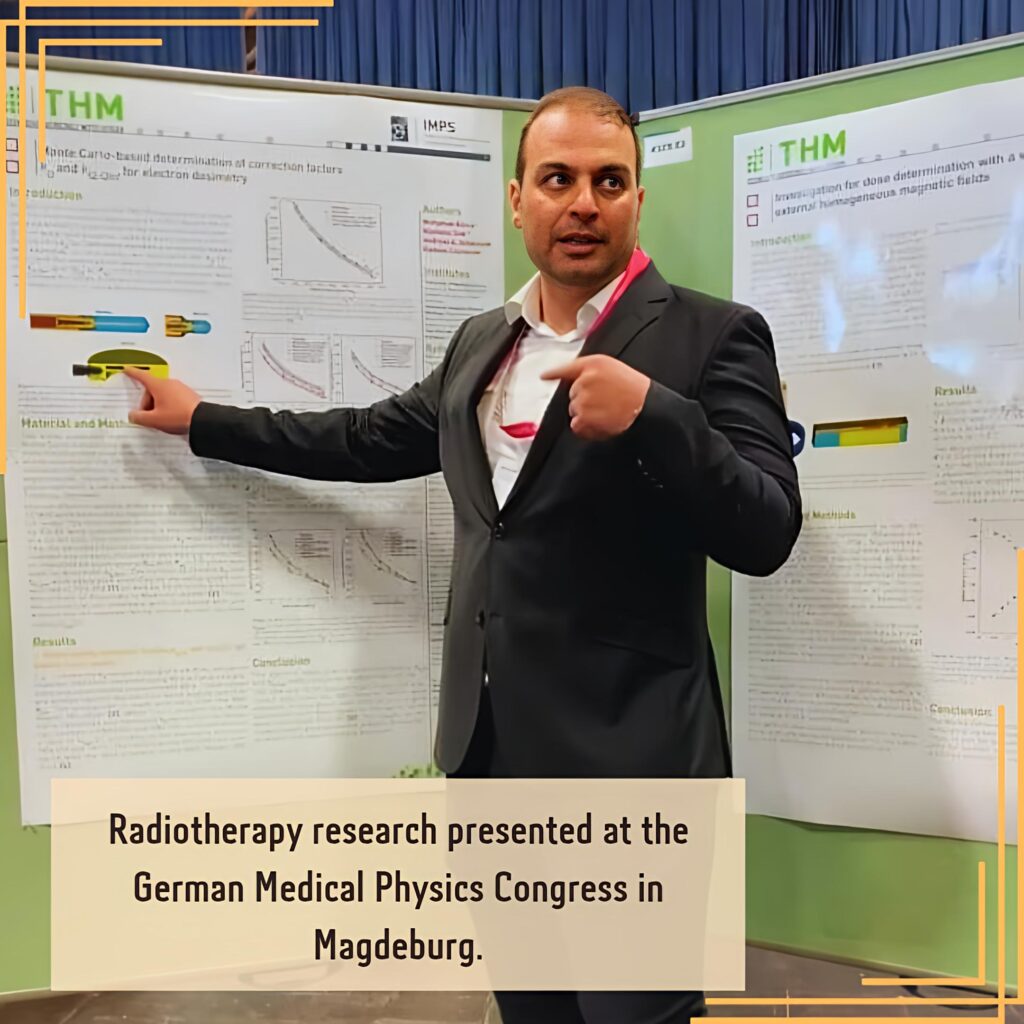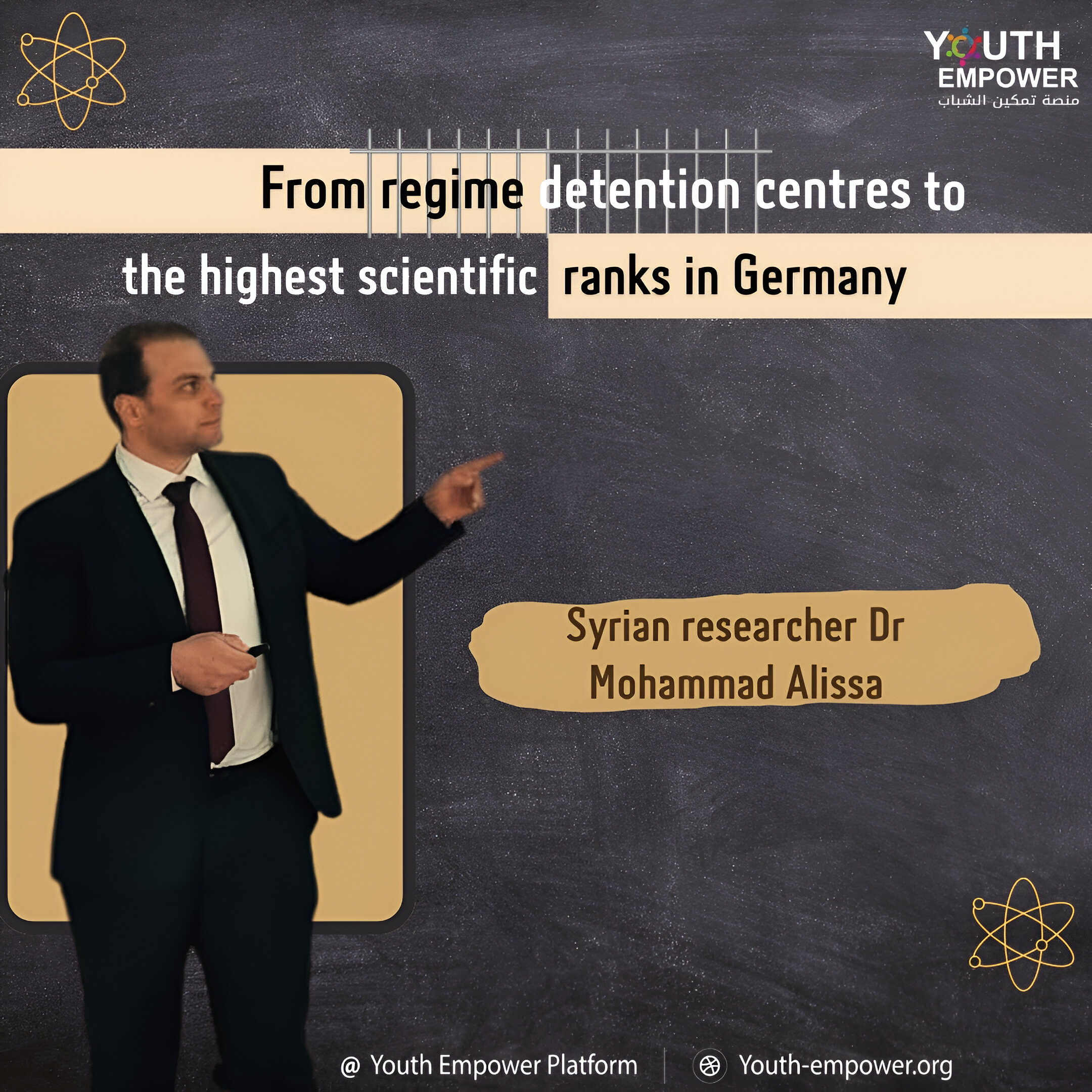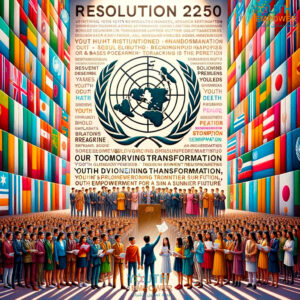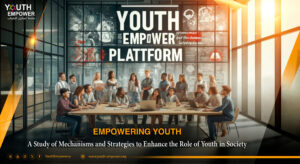Dr. Mohammad Al-Issa: From the Regime’s Prisons to the Highest Academic Ranks in Germany
Dr. Mohammad Al-Issa represents an example of Syrian minds that faced oppression, imprisonment, and threats of execution due to his political stance and opposition to the Syrian regime. Mohammad grew up in the city of Bosra al-Sham in southern Daraa province, one of the first cities to rise against the regime, offering martyrs and detainees like every Syrian city, refusing the injustice of Assad, as he puts it.
Mohammad is the brother of martyr Malik Al-Issa, one of the first to cry out for freedom at Aleppo University in the early days of the revolution. Mohammad’s story is one of determination and ambition, proving that these traits know no limits. This story made him one of the most distinguished individuals in the world today in a highly challenging field. So, how did Mohammad’s journey lead him to Germany, passing through his work within the revolutionary movement?
Dr. Mohammad’s Early Life and Education:
Mohammad Al-Issa grew up in the city of Bosra al-Sham in Daraa province, where he completed his secondary education. In a lengthy and exclusive interview with the *Youth Empowerment Platform*, Mohammad said that his family instilled a love for education in him from an early age. The people of Bosra know his father, Ahmad Al-Issa, very well, who graduated many generations of students in Hauran since the early 1970s.
Mohammad chose to specialize in physics (a subject he had loved since childhood) after completing secondary school with a high average. He managed to enter Damascus University in 2004 and graduated in 2008, marking a new stage in his life, the first step on his path to success.
Mohammad then began studying for a master’s degree in “Radiation Protection, Safety, and Security of Radioactive Sources” at Damascus University and the Syrian Atomic Energy Commission. His professional journey coincided with the onset of the revolution, which began just as he started working at the Syrian Atomic Energy Commission in the Department of Radiation Protection and Safety, all while pursuing his master’s degree. His thesis was titled: “Estimating the Radiation and Environmental Effects of a Radioactive Waste Disposal Facility in the Oil and Gas Industry.”
Dr. Al-Issa as a Revolutionary and His Imprisonment:
Mohammad’s revolutionary activity surfaced from the very moment demonstrations began in Daraa Al-Balad. The arrest of his brother, martyr Malik, on the second day of demonstrations in Daraa city ignited a fire within him. Seeing the bloodshed deeply affected him, and the loss of many friends only solidified his pre-revolution conviction that life was not possible under this regime.
Despite this, Mohammad asserts that knowledge is a parallel weapon to revolting against oppression and is crucial for uplifting societies. He believed education must continue, no matter the circumstances, which is what motivated him to continue his work and studies in Damascus.
In parallel, Mohammad was also involved in humanitarian efforts and helped establish the groundwork for the Local Administrative Council. During this period, Mohammad participated in a course in Hungary titled “Portable Radiation Measurements,” nominated by the International Atomic Energy Agency. However, he missed two other courses due to the difficult circumstances during the siege of Daraa; these courses were on radioactive waste as part of the International Atomic Energy Agency’s program, held in Abu Dhabi and Austria.
Mohammad’s defense of his master’s thesis came in May 2012, after which he made the final decision to leave his job at the Syrian Atomic Energy Commission and settle in his hometown, Bosra al-Sham, until April 10, 2013.
His efforts to provide assistance in humanitarian and organizational fields led to his arrest from his home by regime thugs from Hezbollah forces. They handed him over to the Military Security Detachment in Bosra al-Sham, and he was later transferred to the Military Security Branch in Sweida, and after interrogation, he was sent to Branch 291 in Damascus (Kafr Sousa), then to the military police in Qaboun, and finally to Adra Prison. Despite there being no clear charges against him, he was arrested purely on racial grounds.
During his imprisonment, Mohammad’s younger brother, Muhannad, was injured and transferred to Jordan due to the lack of adequate facilities in the field hospital at the time, as well as his critical health condition, which could not be treated in regime-controlled hospitals for fear of assassination.
After being released from prison, Mohammad resumed his humanitarian and relief work in liberated areas, though he was unable to return home due to threats from regime militias, as Bosra was not liberated at the time and his house remained under their control.
Travel to Jordan and the Martyrdom of His Brother, Engineer Malik:
After staying in Bosra al-Sham for several months, Mohammad decided to leave for Jordan through revolutionary crossings to check on his brother’s health and visit his mother, who was staying with him. Upon arriving early in the morning, he received news later that day of Malik’s martyrdom. Malik had studied architecture in Aleppo and had been arrested several times before his martyrdom. At that moment, Mohammad decided never to return to Syria as long as Bashar al-Assad remained in power.
It was the right decision for the family, who could no longer bear more suffering, and their conviction that building a future Syria could not be achieved solely through humanitarian work and organization within Syria, but also through science and technology to build a future Syria. Perhaps this is why they chose to stay abroad.
Dr. Mohammad’s Journey to Germany and His Educational Pursuit:
Mohammad obtained a student visa to Germany and traveled directly to face a new and tougher challenge, as he described it. He began learning the German language. Since his visa was for study only and he did not receive financial assistance from the government, he had to work while studying. He needed to complete the German language levels, which are known for their difficulty, as quickly as possible. Therefore, he worked in a Turkish shawarma restaurant for ten months while learning the language, managing to complete the required university level in less than a year.
Mohammad always aimed to pursue a PhD, but one thing changed: he wanted to switch from his previous specialization in radiation protection and radioactive waste management to a new field: radiation therapy for cancer treatment. While searching for a PhD program, he enrolled in a master’s program in medical physics at the Technical University of Central Hesse.
Dr. Mohammad Al-Issa and the Start of His Academic Career:
At the beginning of his master’s studies, the Dean of the Faculty of Sciences and the Director of the Master’s Program noticed Mohammad’s brilliance and quick thinking through the questions he asked and his scientific discussions during lectures. A month into the master’s program, they offered him the opportunity to start a PhD under their supervision, marking the beginning of a new success story and a unique relationship between the supervising professor and the son of Bosra al-Sham.
Read also: Our Study on Mechanisms and Strategies to Strengthen the Role of Youth in Society
Mohammad received a scholarship as a master’s student from the Ministry of Education and Culture, “Hessen Funds,” for outstanding talents. He was honored by the German Minister of Education in Hessen at the beginning of his academic journey, which showed him that excellence is not ignored in Germany, and with distinction, one can reach unimaginable heights without restrictions.
Mohammad’s PhD project at the Faculty of Medicine at Marburg University, in agreement with the Technical University of Central Hesse, was titled “High-Energy Photon Doses in the Presence of Magnetic Fields.” The topic was new, with many scientific and research challenges that Mohammad had to overcome.

During his PhD, Mohammad applied for a new scholarship from the Ministry of Science and Culture as a PhD student and received the grant. He was honored by the university president during a musical ceremony attended by many students and members of the Technical University of Central Hesse.
Nevertheless, Mohammad did not stop there. He applied for a scholarship from the German Left Party and became a member of the “Rosa Luxemburg Political Foundation,” which funded his studies for three years. This grant is considered one of the most challenging scholarships in Germany. However, due to his scientific and social activities, the foundation found him the right candidate for political and academic support.
Among the accomplishments Mohammad is proud of, and which he considers a source of pride for anyone who challenges the odds and achieves success in Germany, is:
“Being chosen by a judging panel in Hessen, nominated by his university, as one of the top 20 foreign-born figures in Hessen.”
Most of the honorees at this event were professors at the world level, including university presidents, lawyers, and doctors who made significant discoveries in Germany. Mohammad recalls what the Minister of Integration told him when explaining why he was selected among such distinguished figures: he was the youngest among them and achieved remarkable accomplishments in just a few years. The minister suggested that during the time they had been in Germany, Mohammad would likely achieve even more than them.
During the ceremony, Mohammad received a certificate from the Minister of Social Affairs and Integration in a grand celebration at “Biebrich Palace” in the capital of the state. In addition, a book was published by the ministry as a tribute to all the honorees, featuring their achievements. Mohammad’s name appeared as the first personality in the book.
Malik Association:
Mohammad founded a licensed association in Germany named after his brother, Malik. The association works to support foreign students in Germany, especially Syrian refugees. The idea of the association has garnered significant attention from academic and social figures in Germany since its establishment. Mohammad has helped many students obtain scholarships, admissions, and guidance in their studies, and he has even assisted a large number of students in securing PhD positions.
Dr. Mohammad Al-Issa Today:
Today, Mohammad Al-Issa has completed his PhD, achieving a milestone that received considerable media attention due to the difficulty of the specialization and the contributions he made to the field of radiation cancer treatment. In his project, he studied radiation doses in a very advanced device that had only recently been introduced for patient treatment, providing results that are now used globally to improve the quality of radiation therapy.
As before, Mohammad felt it was time to take a qualitative leap in his life that aligned with this achievement and his future ambitions. His new destination was the city of Cologne, Germany, where he became the Director of Medical Physicists at a company consisting of three hospitals specializing in cancer treatment, equipped with the latest technologies and devices used to combat this difficult disease.
In this context, Dr. Mohammad mentions that this new challenge and responsibility align perfectly with his ambitions. It represents a new step towards his long-term goals, carrying much responsibility and offering plenty of new learning opportunities. The work environment is entirely different from his previous academic experience, and to this day, Mohammad enjoys every day in his new job, continuously learning and integrating his previous experiences.

Dr. Mohammad Al-Issa and His Future Vision:
Mohammad asserts that he sees no hope in the near future for Syria, as the dictator and mercenaries sit atop the ruins of the country without any regard for the Syrian people, whether supporters, opposition, or neutrals. However, he believes that everything will change eventually. The region has a history of going through phases of dictatorship, but the people of Syria are capable of overcoming these challenges and achieving victory, even if it takes time.
On a personal level, Mohammad currently keeps his plans private. He states that for the next 10 years, he will focus on his current responsibilities and challenging task.
He jokingly adds, with ambition, “Maybe in 10 years, we’ll have an interview when I own one of the cancer treatment hospitals in Germany.”
How Can Al-Issa’s Success Inspire Others, and His Opinion on the Success of Syrians in Exile:
Mohammad Al-Issa emphasizes that his success is just a small part of the successes achieved by Syrians in exile. Success does not necessarily mean making a scientific discovery or inventing something new. Any accomplishment by Syrians is a success and distinction, especially in this short period despite all the tragedies and circumstances.
Now, in every street and every place in Germany, you find Syrians who have surpassed all other nationalities, leaving their mark. The Syrian people are alive, capable, and quick to adapt. With a bit of hope, Mohammad says:
“Although the regime thought that by oppressing us and killing our dreams in Syria, they would extinguish all hope in us, that is not true. In the long run, something significant will happen, and it will be a big leap for Syrians, bringing back knowledge, expertise, and even economic support to Syria, along with the practical mindset, organization, and precision that one learns in Germany.”
Although many state that they will not return to Syria, Mohammad believes that a large number will return, and they will be among the finest people. They will be capable of building a Syria better than Germany.
Dr. Mohammad Al-Issa’s Message to Youth:
I want to send a message to every Syrian girl and boy not to lose hope despite the difficult circumstances.
There is no success without failure, but the important thing is perseverance and patience. I also wish for families to understand their children and their capabilities better, without focusing only on medicine or engineering.
These fields are not the only paths for students; there are other specializations that can be more important than medicine, but what matters is what the student loves and where they find themselves.
Follow us on social media:
Facebook | Twitter | Instagram | WhatsApp |Threads




